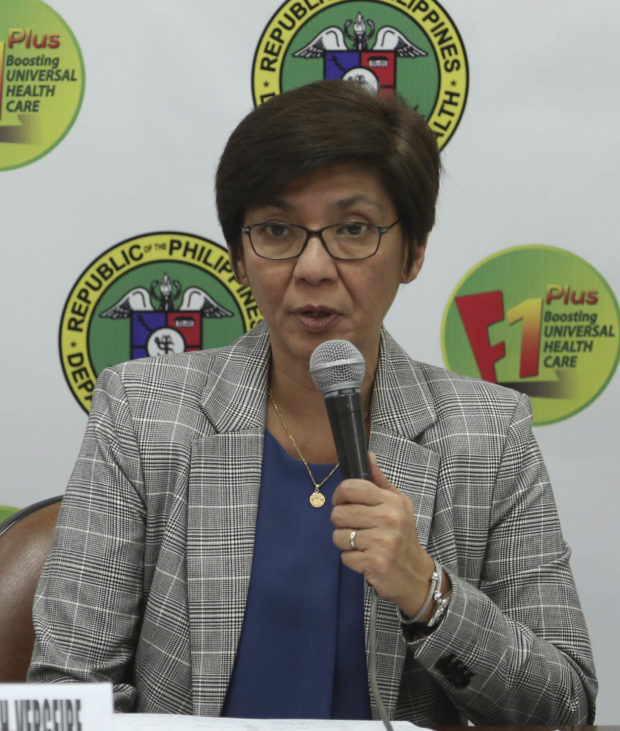
Health Undersecretary Rosario Vergeire.
INQUIRER FILE PHOTO / EDWIN BACASMAS
MANILA, Philippines — There is no reason yet to believe that the death of a 63-year-old man with chronic diseases in Hong Kong is linked to his receipt of the Covid-19 vaccine from China’s Sinovac Biotech, the Department of Health (DOH) said Wednesday.
“At present, we have no reason to believe that this death was in any way associated with the vaccine. The Hong Kong authorities will investigate the death. If they find an association with the vaccine then they will issue an alert to WHO and share it with other countries,” Health Undersecretary Maria Rosario Vergeire told reporters in a Viber message.
“Every death is a tragedy for the families involved, but among the elderly and people with chronic conditions there are deaths every week,” she added.
According to reports, Hong Kong authorities said they are investigating the death of the man who died two days after receiving the first shot of CoronaVac, the Covid-19 vaccine of Sinovac, but added that no connection between the death and the vaccine has been confirmed yet.
The man died on Sunday at the Queen Elizabeth Hospital. Reports showed he was hospitalized due to shortness of breath earlier on the same day.
CoronaVac was the first Covid-19 vaccine to be rolled out in the Philippines, following China’s donation of 600,000 doses of the vaccines to the government.
The vaccines have since been administered to frontliners in select hospitals since the first day of the inoculation activity on Monday.
The DOH earlier said that the side effects experienced by a few number of vaccinees were “minor and common,” ranging from pain in the arm, rashes, being nauseous, and increase in blood pressure.
The Philippine Food and Drug Administration (FDA) earlier said that the vaccine’s efficacy rate on healthcare workers stands at 50.4 percent based on clinical trials conducted in Brazil, making it not the best vaccine to be given to medical frontliners exposed to Covid-19 patients.
Meanwhile, the vaccine also showed a higher efficacy rate of 65.3 percent among clinically healthy people aged 18 to 59 based on clinical trials in Indonesia, and 91.2 percent based on clinical trials in Turkey, according to the FDA.